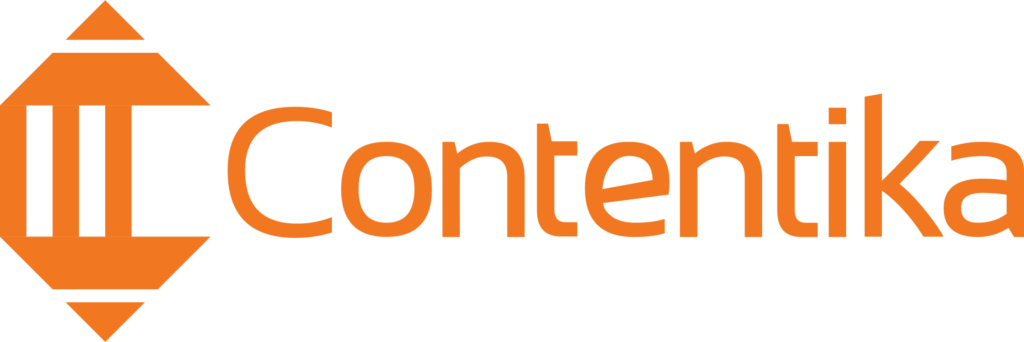According to Zippy, webpages with 0-4 internal links only see two clicks on average from search results. Meanwhile, webpages with 40-44 internal links see four times that many, with the traffic volume decreasing as the links get as many as 45.
As important and stressful as internal linking is, many tools that have been designed to ease the process are either too expensive to use for individuals or businesses with multiple websites or simply take away your control over the entire process.
We’ve made it easy for you by exploring the best internal linking tools available on the internet to make the internal linking process very easy.
The Best 7 Internal Linking Tools for SEO
There are several internal linking tools out there, but here are the top seven internal linking tools that offer unique features to help you optimize your website’s link structure.
- SEO FusionAI
- Yoast SEO
- Link Whisper
- Rank Math
- All In One SEO
- Ahrefs
- Internal Link Juicer
1. SEO FusionAI (Best Overall)
SEO FusionAI is relatively new but is a brilliant, AI-powered internal linking tool that is designed to help writers like yourself and SEO professionals manage the internal linking process efficiently and with precision while leaving you with full control over the entire process.
Pros
- Built with content-matching logic that ensures suggestions are accurate and SEO-efficient.
- Finds and fixes broken internal links to help you maintain site health.
- You have full control and the final say on every link before it goes live.
- No clunky dashboards, ads, or pop-ups.
- It is completely free.
Cons
- It is a relatively new tool.
- It requires manual review for link suggestions.
2. Yoast SEO
Yoast SEO is one of the most popular WordPress SEO plugins, offering a range of features, including basic internal linking tools for premium users. It scans your content for internal links and provides suggestions directly within the WordPress editor.
Pros
- Suggest linking ideas as you write.
- Provides analysis of post optimisation, including internal link count.
- Integrated with WordPress for straightforward link management.
Cons
- It is resource-heavy for websites with limited hosting resources.
- Usually doesn’t fully grasp user intent or content context.
3. Link Whisper
Link Whisper integrates with Google Search Console to offer site metrics and traffic data directly in your WordPress dashboard.
Pros
- Automatically add internal links for specified anchor texts.
- Integrated with Google Search Console and allows access to essential site metrics without leaving WordPress.
- Available for both WordPress and Shopify.
Cons
- Subscription fees can be heavy, especially for users managing several websites.
- Does not support many languages.
4. Rank Math
Rank Math is an SEO plugin for WordPress that offers intelligent internal link suggestions directly within the content editor.
While its link-building features are not as comprehensive as some other tools, it does provide a solid foundation for basic internal linking needs.
Pros
- The plugin provides you with internal linking suggestions as you write.
- Comes with a wide range of tools, such as its internal linking module.
Cons
- Suggestions must be added manually as the plugin doesn’t create links automatically.
- The initial configuration is usually complex for new users.
- The Business plan is a significant investment for smaller websites.
5. All In One SEO (AIOSEO)
All In One SEO (AIOSEO) is also another SEO plugin built specifically for WordPress, and includes a Link Assistant feature for suggesting relevant internal links.
The dashboard provides you with a detailed breakdown of your internal linking structure, including stats on internal, external, and affiliate links.
Pros
- Helps to identify pages on your website without internal links.
- Can modify anchor texts for better readability before adding links.
- Provides insights into your link structure.
Cons
- Not suitable for websites on other CMS platforms.
- Link Assistant is only available in the Pro and Elite plans.
- It can slow down your website if it is not optimized.
6. Ahrefs
Ahrefs is a flexible SEO tool that offers a wide range of features, including the link opportunities report for building internal links.
While it is not particularly designed as an internal linking tool, Ahrefs provides detailed insights into source and target pages, anchor text, and keyword context, making it a valuable asset for SEO professionals.
Pros
- Offers features beyond internal linking, including keyword research and competitor analysis.
- Provides detailed data for informed link-building decisions.
Cons
- Premium features come with a high price tag.
- Some users find the credit-based usage model restrictive.
7. Internal Link Juicer
Internal Link Juicer is a WordPress plugin designed for users who want a straightforward and automated approach to internal linking.
It offers a dedicated dashboard where you can configure settings like link frequency and exclusion rules.
Pros
- Has a simple interface for quick setup and management.
- Allows you to control how often URLs are linked and which sections to exclude.
- Provides data on top anchors, outgoing, and incoming links.
Cons
- It is very rigid when choosing where links are placed within your content.
- Cannot limit the number of links per sentence, which may affect readability.
- Some of the best features can be pricey.
Pricing Comparison
You are most likely looking for a tool that gives you all of the best features but at a price you can afford.
Below is the price comparison of the internal linking plugins on this post.
| Tool | Pricing (Basic Pro Plans) |
| SEO FusionAI | Free |
| Yoast SEO | $99 annually. |
| Link Whisper | $97 annually per license. |
| Rank Math | $7.99 monthly. |
| All In One SEO | $49.60 annually. |
| Ahrefs | £99 monthly. |
| Internal Link Juicer | $69.99 annually. |
Unique Features Comparison
Every of the tools named in this post have their unique selling points, of course, some of them have overlapping features.
| SEO FusionAI | Yoast SEO | Link Whisper | Rank Math | All In One SEO | Ahrefs | Internal Link Juicer | |
| Free | ✅ | ❌ | ❌ | ❌ | ❌ | ❌ | ❌ |
| AI -Powered | ✅ | ✅ | ✅ | ✅ | ✅ | ❌ | ❌ |
| Broken Link Detection | ❌ | ✅ | ✅ | ✅ | ✅ | ✅ | ✅ |
| Google Search Console Integration | ✅ | ✅ | ✅ | ✅ | ✅ | ✅ | ❌ |
| Multi-CMS Support | ✅ | ✅ | ✅ | ❌ | ❌ | ✅ | ❌ |
| Other SEO Tools | ❌ | ✅ | ❌ | ✅ | ✅ | ✅ |
Is SEO FusionAI The Best Internal Linking Tool For SEO?
We took into account a lot of factors when ranking SEO FusionAI as the best overall plugin for internal linking
One of the major factors we considered is the fact that SEO FusionAI learns by reading through your content, extracting the context of the ideas you are trying to pass across, and making suggestions that are not only relevant but are also aligned with your SEO goals strategically.
Also, the use of AI for human-based tasks can be robotic, and the same can be said for SEO FusionAI. Taking this into account, the plugin lets you, as the user, accept or reject the links it suggests, thereby making sure that errors are kept to a barest minimum.
As most of the plugins out there require some form of monetary subscription, SEO FusionAI is built differently. It is completely free for anyone, businesses and individuals alike. To cap these features, the interface is super clean and allows you to manage the linking process without distractions.
Conclusion
Internal linking is a vital component of any successful SEO strategy, and the right tool can make all the difference in managing it effectively.
Each of the tools we compiled above has something unique to offer everyone. However, for its combination of advanced features, ease of use, and cost-effectiveness, SEO FusionAI stands out as the best overall internal linking tool.
Don’t waste any more time searching for internal plugins to use when you can integrate SEO FusionAI into your SEO linking process. Try it now!












